Biking, Walking and Trails Win Big in 2024 Ballot Measures
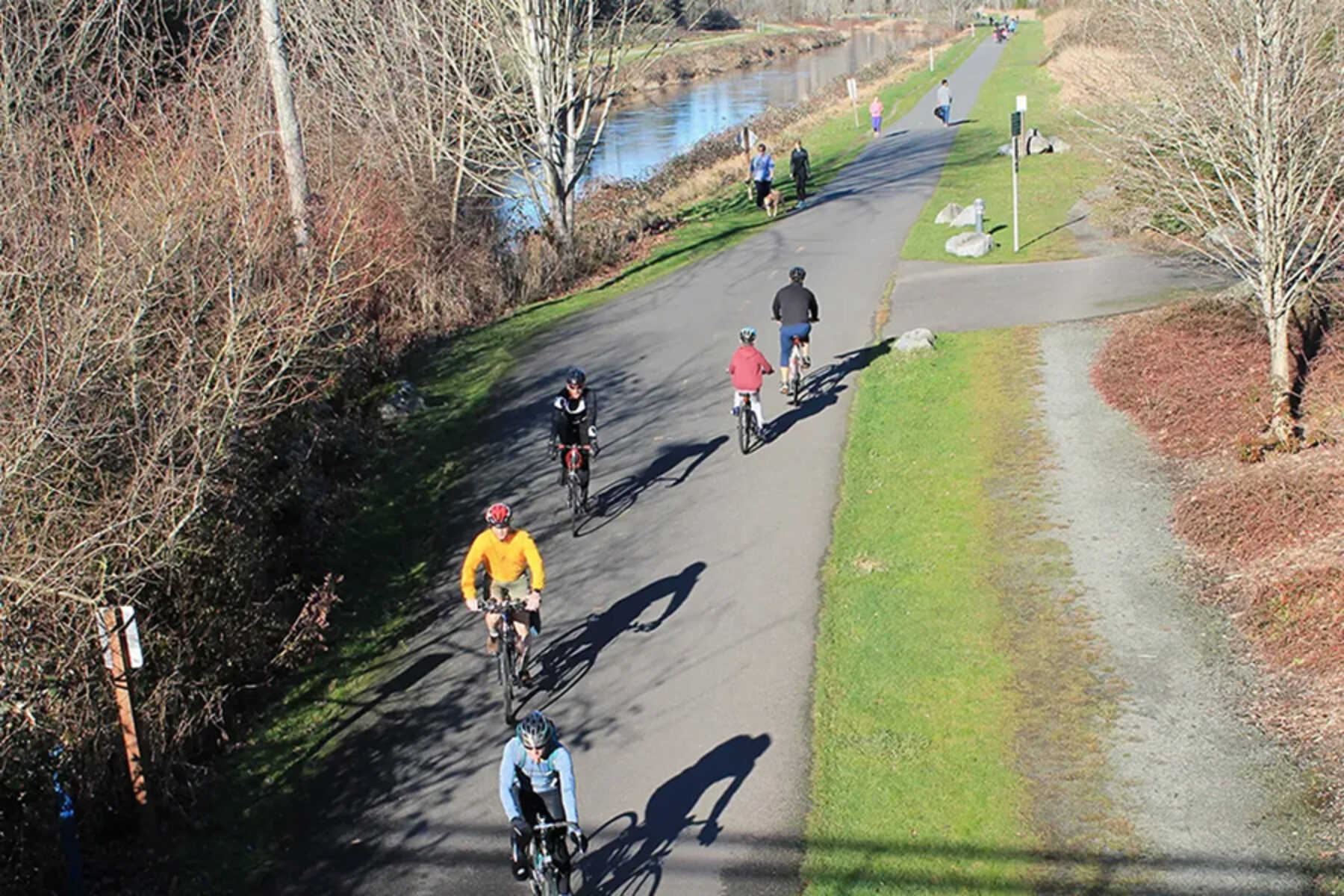
In last Tuesday’s election, voters resoundingly said “yes!” to trails and active transportation on the ballot. Coast to coast, direct voter referenda (in different states, called “Propositions,” “Measures,” “Questions” or “Initiatives”) related to trails, biking, walking and public transit fared very well at both the state and local levels. And in one state, in particular—we saw counties take action to fund trails after years of inaction at the state level.
Rails to Trails Conservancy often gets involved in ballot initiatives where we have ongoing advocacy and trail development work, focusing our efforts on where we can collaboratively make the greatest impact. RTC supported campaigns for seven ballot initiatives this year in six states—all of which had successful outcomes.
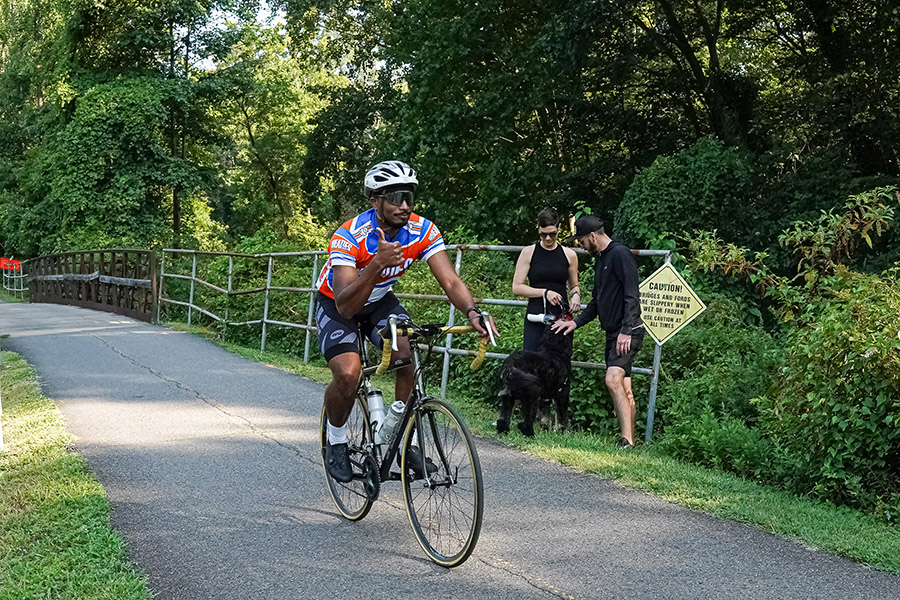
The 100% success rate for these ballot initiatives was part of a wider national trend of voter support for investments in biking, walking, trails and public transit. People for Bikes tabulated that more than $27 billion for biking and walking infrastructure was approved via referenda in 2024; you can look up what passed in your state on their website. The American Public Transportation Association also reported more than $25 billion in funding for transit via initiatives—many of which included biking and walking and a success rate of 86.7%. East Coast Greenway also describes various trail-centric victories from Maine to Florida in its blog.
In communities across America, voters sent a clear message: They want to be able to walk and bike where they live. Whether for transportation or conservation, people solidly supported trails at the ballot box. This reinforces the importance of advocacy at all levels, so we can secure big wins for trails. Below is a quick snapshot of recent ballot successes.
Voter Approved Billions for Biking, Walking and Trails In November Ballot
California
California voters overwhelmingly passed a sweeping climate initiative that includes funding for trails and outdoor recreation as well as resilience measures like wildfire protection. Trails are eligible within several funding pots—with a combined value of $1.54 billion—contained in Proposition 4.
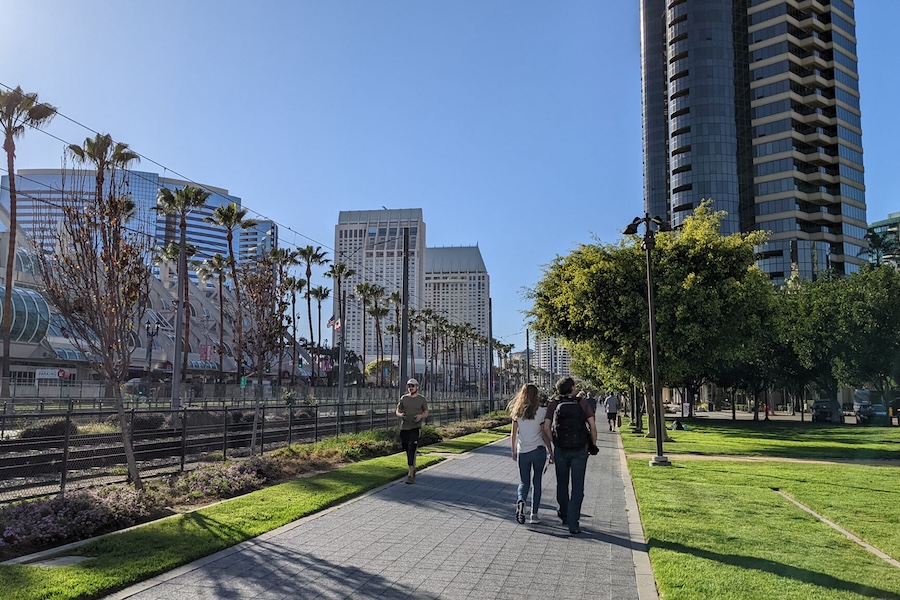
Florida
Florida’s Lake County (north and west of Orlando) provided $25 million for trails and parks as part of a $50 million land conservation bond. This is a major investment for a county with a population of fewer than 400,000 people, who are seeking to protect Florida’s natural beauty in a fast-growing region.
Iowa
Two counties in Iowa provide a model that other localities elsewhere may want to pursue, especially if more state funding isn’t on the horizon. For years, advocates and partners have sought to fund a statewide program, created by voter approval, that would fund trails—including the Great-American Rail-Trail®—and conservation. However, the state legislature didn’t approve the funding. Frustrated by the inaction, Johnson (which includes Iowa City) and Story (which includes Ames) counties went out on their own and put funding trails on the ballot to their own residents—and both passed!
These counties, which host sections of the Great-American Rail Trail, will now have millions of dollars to support trails in their communities. Story County’s $25 million authorization includes $8 million for trails, and trails are eligible for funding from the $30 million pot passed in Johnson County.
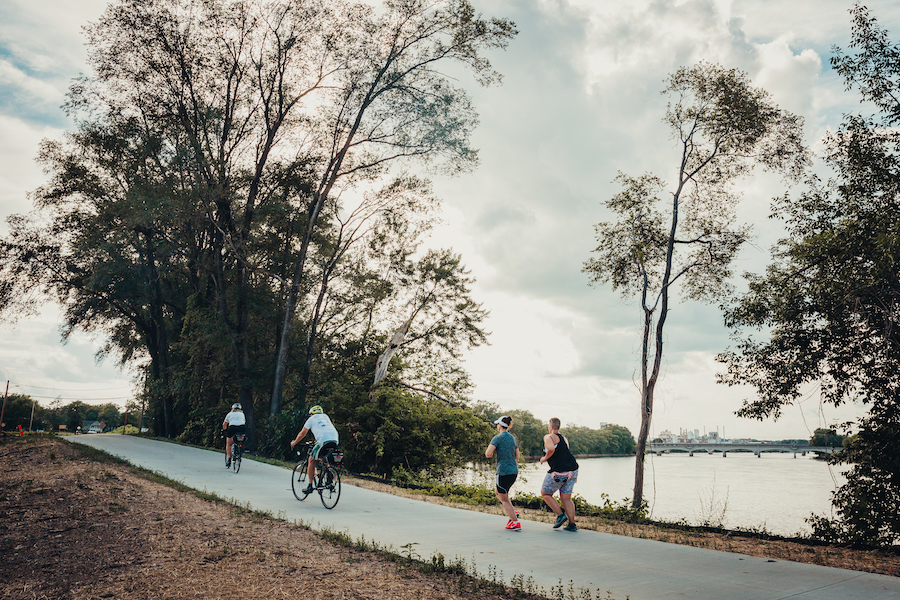
Maine
In Maine, a $30 million trails bond will support trails and active transportation at the local level. RTC supported state partners for the two years it took to pass legislation to put the issue before voters. Among other things, the Maine Trails Bond willprovide much-needed funding for the repair and maintenance of trails across the state and help ensure equitable access for people of all ages and abilities to these spaces.
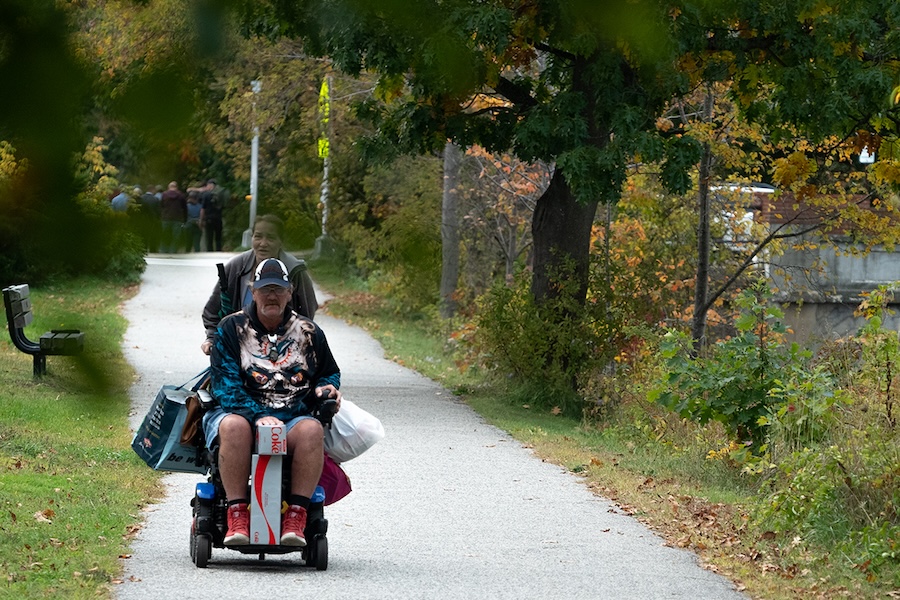
Ohio
In Central Ohio, voters approved a new sales tax levy that will generate $60 million annually for new sidewalks, trails and bike paths (150 miles by 2030)—in addition to historic investments in transit. Multimodal initiatives like this one will better connect Ohio’s most populous county and the Columbus metropolitan area by integrating biking and walking with transit connections.
Washington
In Washington State, voters rejected a plan to repeal a signature climate law and would have dramatically cut significant funding for biking, walking and trails, public transit, and traffic congestion relief. A diverse array of agricultural, business, environmental, faith, healthcare, labor, transportation and transit, and tribal groups opposed the plan as “a bad deal for Washington.”
Leveraging Voter Initiatives for Active Transportation and Climate Solutions
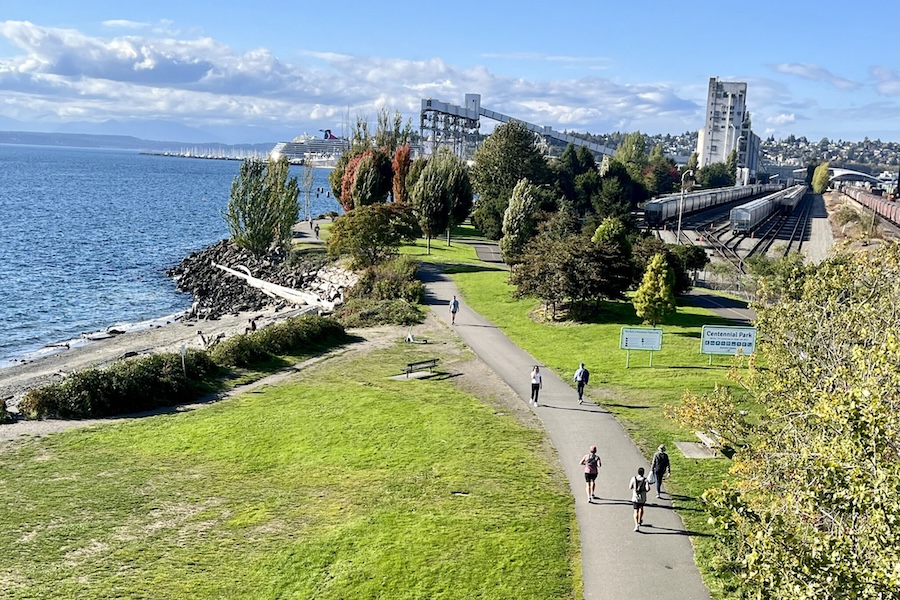
This election made clear that people want their communities to be great places to live—with a clean environment, and safe and affordable transportation and recreation options—and understand that trails help across the board.
Going forward, direct voter referenda may prove to be one of the best ways to pursue new funding. A number of states already have reduced budget forecasts for 2025 and beyond, and some have already proposed cuts to transportation budgets, including biking infrastructure and transit. Federal emergency relief and investments to state coffers have wound down.
RTC is committed to working on the development of direct voter initiatives to ensure that biking and walking is part of the solution. For example, it’s important that campaign leaders know that functional public transit relies on strong biking and walking connections (and vice versa), or that more non-car options can be effective for climate solutions.
Initiatives like these are also a way to link active transportation and trail advocates to allies and partners in a wider range of fields. Ballot initiatives can be a winning strategy—often despite partisan political climate and state budget forecasts—because when voters are faced with the choice to support trails, biking and walking, they say “yes.”
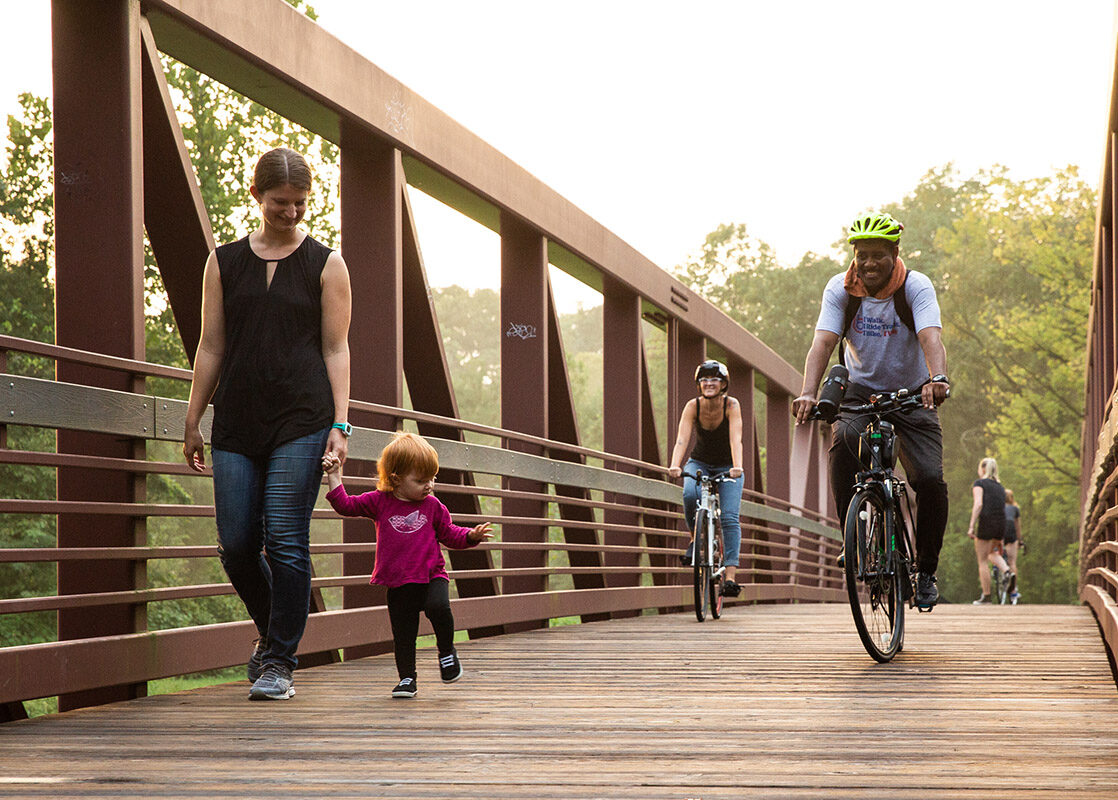
Donate
Everyone deserves access to safe ways to walk, bike, and be active outdoors.
